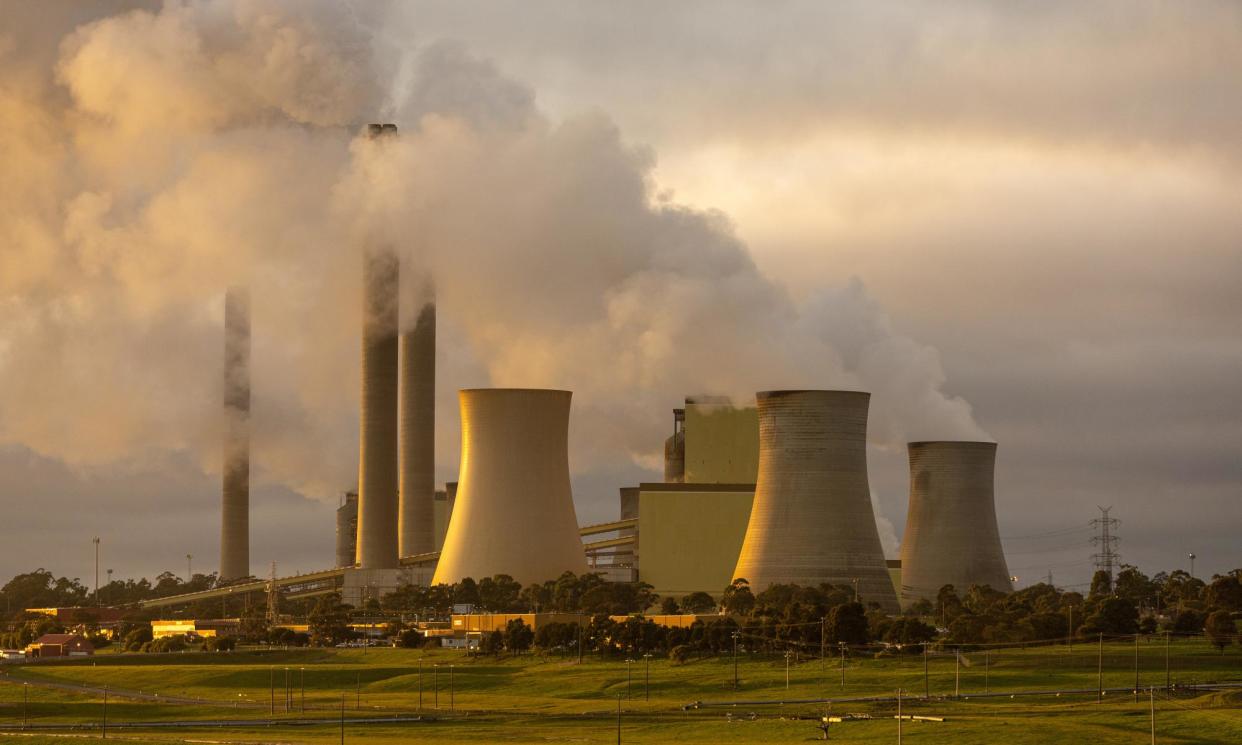Power bills could rise by $1,000 a year under Coalition plan to boost gas until nuclear is ready, analysts say

Australians could face an increase in annual household power bills of up to $1,000 under a Coalition plan to slow the rollout of large-scale renewable energy and use more gas-fired electricity before nuclear plants are ready, analysts say.
As Peter Dutton faced cross-party resistance to his announcement that he would go to the next election promising to eventually build seven nuclear plants, energy market analysts warned the Coalition’s proposal would probably lead to a significant rise in prices over the next decade, before a nuclear industry came online.
Few details of the opposition’s proposal have been released, but Dutton told a press conference on Wednesday that the Coalition would restrict investment in solar and windfarms and cover the electricity shortfall created as old coal-fired plants shut over the next two decades by using more gas power.
Analysts said gas was a far more expensive power source in the national grid than renewable energy or coal, and opening new gas basins was unlikely to change this as the country’s cheap gas had already been extracted. They said adding more gas power could also increase greenhouse gas emissions, accelerating the climate crisis.
Tristan Edis, a director with the firm Green Energy Markets, said the wholesale electricity price was set by the most expensive fuel being used at any given time. Those prices were “very high” – between $250 and $300 per megawatt hour of electricity, about three times the average price – whenever fast-start gas plants were used to complement cheaper coal, solar, wind and hydro energy.
Gas currently provides less than 5% of electricity in the national electricity market, and is only called on when needed to meet demand.
Edis said if a Coalition government put a hold on investment in solar and windfarms and boosted gas power so that it was replacing coal and always setting the price, “you’re talking about an increase of $500 to potentially even $1,000 per annum for a household power bill”.
Dr Roger Dargaville, an associate professor and the interim director of the Monash Energy Institute, said it was difficult to predict what the Coalition’s announcement would mean for bills due to a lack of detail, but agreed the increase in an annual bill could be $1,000.
“It seems the options being presented will either lead to extraordinary maintenance bills to keep old coal plants going or using a lot more gas,” he said. “Coal is a very cheap fuel, so if you’re going from a coal-dominated system to a gas-dominated system, you are going to see very steep energy prices.”
Dargaville said more renewable energy backed by “firming” support – including energy storage, new transmission lines and gas power only when required – was “the only sensible option and almost certainly the least cost option”.
Dr Dylan McConnell, an energy systems researcher at the University of New South Wales, agreed that using more gas-fired power would push up prices for consumers.
He estimated the increase in annual bills, if gas replaced renewable energy as the main new energy source over the next decade, could be $400 or $500.
“If you slow the rollout of renewable energy and backfill with gas we’re talking about quite a large cost,” McConnell said.
The analysts’ estimates are at odds with the Coalition’s claim that its approach would lead to “cheaper, cleaner and consistent electricity” compared with the Albanese government’s goal of 82% of generation coming from renewable sources by 2030.
The shadow treasurer, Angus Taylor, told the ABC’s Radio National on Thursday that power prices could be reduced under the Coalition before nuclear came online because of “shorter-term strategies” including using more gas.
The opposition has said it would make announcements on gas and renewable energy before the election. Coalition MPs have signalled they may offer more support for household solar systems, but stall investment in the large-scale renewable developments. The Nationals leader, David Littleproud, has argued “we won’t need them”.
Dutton said he wanted the commonwealth to build nuclear plants on the site of existing or past coal-fired plants in Queensland, New South Wales, Victoria, Western Australia and South Australia.
Related: Coalition’s climate and energy policy in disarray as opposition splits over nuclear and renewables
But he has not released the cost of the plants, explained how the Coalition would lift legislated federal and state bans on nuclear power, or said why he believed the first two plants could be operating by 2035 or 2037 – a much faster timeframe than experts say would be possible.
On Friday, progressive thinktank the Australia Institute released the results of a survey of 1,005 Australians that it commissioned from the firm Dynata in May.
It found nearly two-thirds (65%) said they were not prepared to pay extra to have nuclear power in the mix.
However, nearly one-quarter of respondents said they would be prepared to pay more to introduce nuclear. About 4% said they were prepared to pay more than $500 extra a year.
The executive director of the Australia Institute, Richard Denniss, said it showed that “residents across the country, regardless of who they vote for, don’t support a nuclear future that requires them pay more for electricity than they already do”.

 Yahoo News
Yahoo News 
